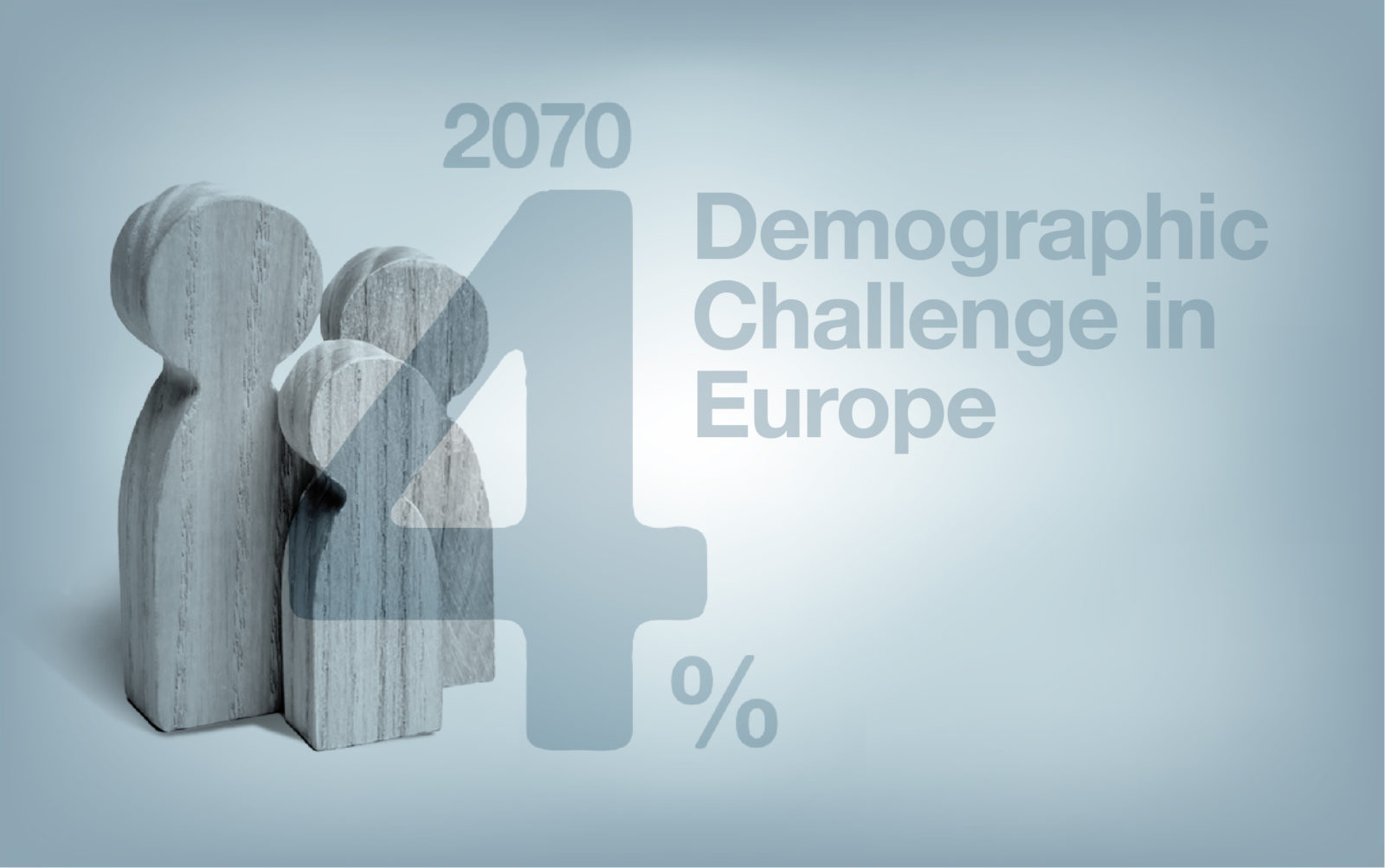Answering the Central Question Behind the Demographic Challenge in Europe
28 August 2024

Demography presents a significant challenge for Europe, with implications that span from the EU’s economy and strategic autonomy to its social composition and functioning. An ageing Europe will find it increasingly difficult to maintain its role as an international actor, and ultimately, to prosper.
According to official figures from the European Commission, by 2070, Europeans will account for only 4% of the world’s population, down from 6% today. By 2050, the proportion of people over 65 will increase to around 30%, up from 20% today. A crucial indicator underlying these projections is the current birth rate: today, there are only 1.5 births per woman, compared to the 2.1 needed to maintain a stable European population.
Policies have already been discussed, including those by the Martens Centre in its publication “The 7Ds – Demography in Depth”, to directly enhance the human resources available in Europe and address the demographic problem. The European Commission has adopted and presented the Demography Toolbox to consolidate experiences and best practices from all European countries, highlighting an integrated approach to each country’s various challenges.
However, it is essential to explore the root cause of the issue. Why do Europeans choose not to have children, and why is the birth rate so low? Undoubtedly, the reasons are numerous and vary significantly from country to country. However, there may be some common denominators in this complex equation.
In Greece, for example, the newly established Ministry of Family and Social Cohesion, under the leadership of Minister Sophia Zacharaki, is preparing a new strategy to address the demographic issue with a package of measures. This strategy is data-driven and science-based, including pioneering research. For the first time, the reasons people decide not to have children were studied in depth using a combination of quantitative and qualitative research.
In the qualitative survey of couples of childbearing age, couples’ prioritisation in their lives was examined. The survey revealed that the top priority for couples was the desire to “enjoy life,” with the choice to have a family and children ranking among the lowest priorities. Notably, during free discussions, participants without children primarily talked about their travel plans and pets, while the topic of children rarely arose on its own.
The survey also highlighted a shift in family dynamics: a few decades ago, family power was in the parents’ hands, but now, in many Western societies, there is a phenomenon known as ‘enfants rois’. These ‘child kings’ not only hold the family power, but are also unready to grow and hand their crowns to the next generation.
More than half of the respondents (6 out of 10) said they do not plan to have a child and do not consider it likely. Although initial responses often cited financial concerns, further investigation revealed that most are unwilling to change or sacrifice their lifestyle, career, or life trajectory to assume a parental role.
In this context, the child is perceived as a burden that much of our society does not wish to bear.
The survey’s findings suggest that significant institutional interventions are needed, as young families require a more supportive environment to feel secure in their decision to have children. New housing policies and measures to address contemporary social and personal needs are also essential. These should help balance personal and professional careers with parenting, providing stable support structures for children and families while ensuring a high quality of life for parents.
However, something deeper and more complex than a legislative and fiscal intervention is required. We need to develop a new European value system in which collectivity transcends individuality, and personal well-being can coexist with social development responsibilities.
We need new social models and a new paradigm of collective effort that would redefine and emphasise “social purpose”.
Only within such a framework could we create a new emotional foundation that encourages investment in procreation, reversing the dramatic trends of our demographic challenges. Forming a family and having at least one child could become a higher priority in this environment.
ENJOYING THIS CONTENT?





















